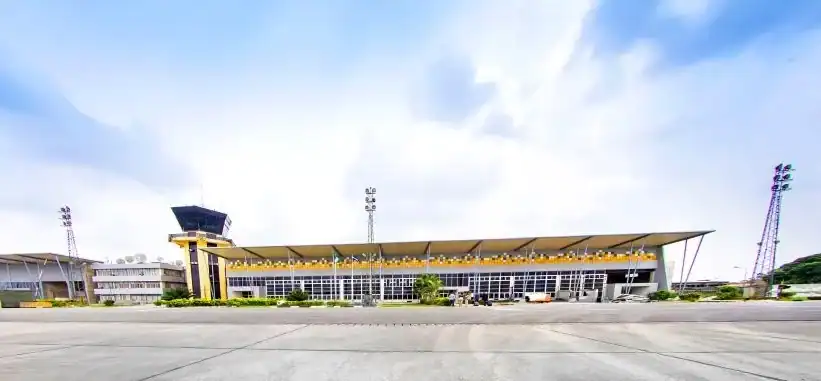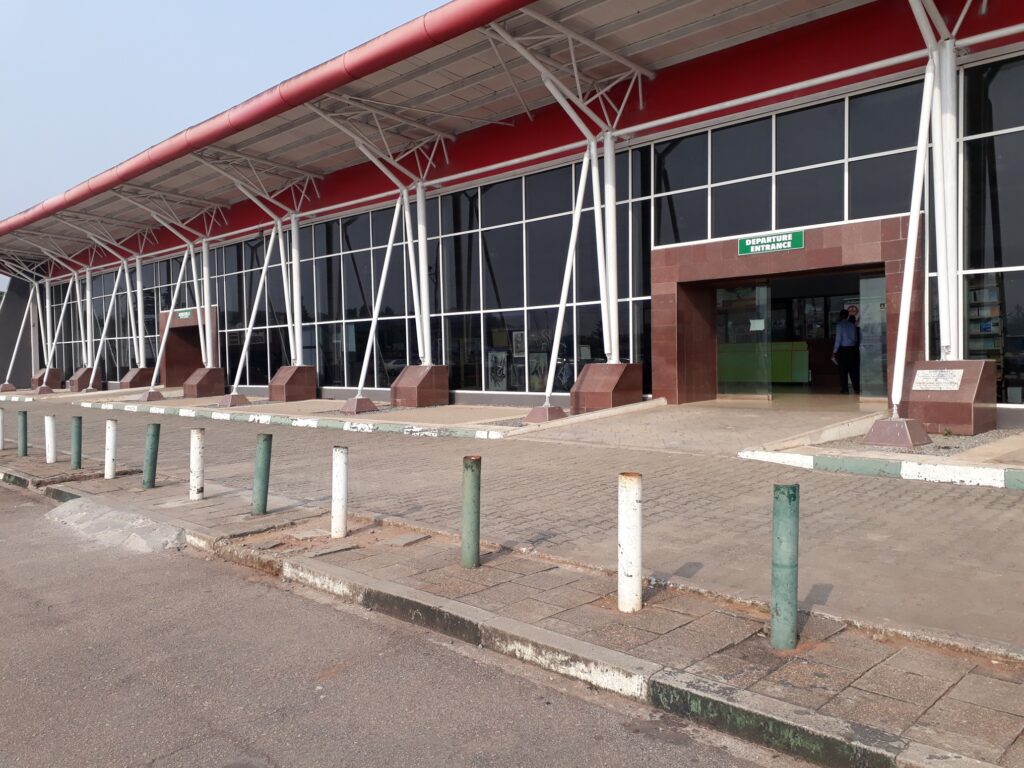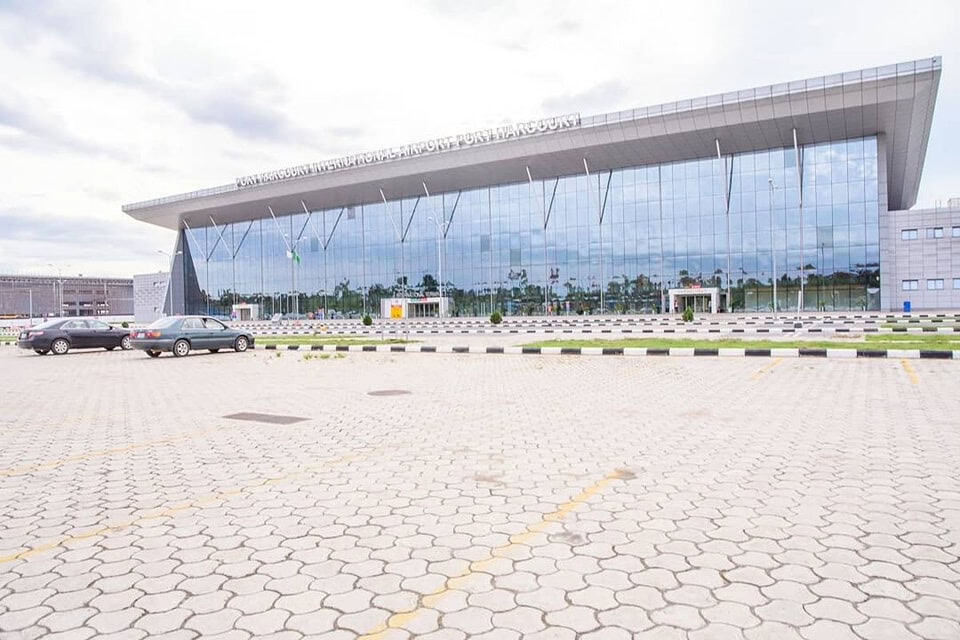Nnamdi Azikiwe International Airport, commonly known as Abuja Airport, serves as the primary gateway to Nigeria’s capital city. Located about 20 km southwest of Abuja’s city center, this international airport has two terminals handling both domestic and international flights.
With a single runway, one taxiway, and modern facilities, it accommodates over 3 million passengers annually. The airport offers various transportation options, including the airport train station, taxis, ride-hailing services, and car rentals. Travelers can expect standard amenities such as lounges, shops, and restaurants.
This guide provides comprehensive information on navigating the airport, from check-in procedures to exploring the surrounding area, ensuring a smooth travel experience through Abuja’s main air hub.
What is the name of Abuja airport?
The official name of Abuja airport is Nnamdi Azikiwe International Airport (NAIA). This airport, known by its IATA code ABV, serves as the main gateway to Nigeria’s capital city, both locally and internationally, and is commonly referred to as the international airport in Abuja.
The airport in Abuja, Nigeria, was named in honour of Dr. Nnamdi Azikiwe, Nigeria’s first president and a prominent figure in the country’s independence movement. The name reflects the airport’s national importance and pays tribute to a significant historical figure.
As the primary international airport in Abuja, NAIA plays a vital role in connecting the capital city to over 60 destinations across Nigeria, Africa, and the world.
Is Abuja airport an international airport?

Yes, Abuja Airport is one of Nigeria’s nine international airports, offering flights to over 20 international destinations. It connects travelers to major cities across Europe, North America, South America, Asia, the Middle East, and other African countries. Approximately 3 million passengers pass through the airport annually.
Where is Nnamdi Azikiwe airport located?

The Abuja airport is located approximately 20 kilometres (12 miles) southwest of Abuja’s city center. The airport’s address is Umaru Musa Yar’Adua Expressway, Abuja, Federal Capital Territory, Nigeria. It’s situated in the Lugbe district of the Federal Capital Territory, providing convenient access to the city and surrounding areas.
For those using the Abuja airport map, the airport’s layout includes a single runway, with the terminal buildings located to the north of the runway. The domestic and international terminals are separate structures, connected by a short walkway. The airport is accessible via the Umaru Musa Yar’Adua Expressway, which connects directly to the city center.
How many terminals does Abuja Airport have?
Abuja Airport has five terminals: Terminals A, B, C, D, and E.
- Terminals A and B: Terminals A and B serve domestic flights. These terminals handle flights from airlines such as Arik Air, Air Peace, Ibom Air, and United Nigeria Airlines, connecting Abuja to various cities within Nigeria. Terminals A and D are generally smaller and have fewer amenities compared to the international terminals (C and D).
- Terminals C and D: Terminals C and D are dedicated to international flights. Airlines like British Airways, Lufthansa, Turkish Airlines, and Qatar Airways operate from these terminals, offering connections to destinations around the world. Terminals C and D offer more extensive facilities, including duty-free shops and airline lounges.
- Terminal E: Terminal E is a recently opened terminal for international operations, though it’s not yet fully completed.
Navigating Inside Abuja Airport

Layout of the airport in Abuja
Abuja Airport’s layout is designed for efficiency and ease of navigation. The airport currently operates with one runway, which underwent significant refurbishment in 2017 to improve its capacity and safety. However, there are plans for a second runway at Abuja airport to accommodate increasing air traffic.
The arrival hall is located on the ground floor of each terminal, where passengers can find baggage claim areas and customs counters for international arrivals. The departure hall is typically on the upper floor, housing check-in counters, security checkpoints, and gates.
Throughout the airport, passengers can find ATMs for cash withdrawals and currency exchange services. Various restaurants and cafes are available in both the public and secure areas of the terminals, offering a range of dining options from quick snacks to full meals.
Flying into Abuja Airport?
Let us plan your journey and find the best flight deals to Nnamdi Azikiwe International Airport.
Abuja Nnamdi Azikiwe Intl ABV Lounges

Nnamdi Azikiwe International Airport (ABV) in Abuja offers several lounges to enhance passenger comfort and convenience. These lounges are available in both domestic and international terminals, providing a range of amenities for travellers.
In the Domestic Terminal, passengers can access the following lounges:
- @9tysix Lounge: Located airside on the 2nd floor of the Departure Hall, this lounge is open from 06:00 until the last flight. It offers facilities such as disabled access, TV, internet, refreshments, air conditioning, and complimentary alcohol.
- Lounge One: Situated airside in the Module B Wing, opposite the Boarding Gate, this lounge operates from 06:30 to 20:00 daily. It provides amenities including TV, refreshments, air conditioning, and flight information displays. Note that alcoholic drinks are subject to additional payment.
- Airspace Lounge: Found landside on the 1st floor of the Module D Wing, this lounge is open from 07:00 to 20:00 daily (closed on December 25 and January 1). It offers a range of facilities including TV, internet, refreshments, air conditioning, and shower facilities.
In the International Terminal, travellers can find:
- SDS Lounge: Located airside in the Module C Wing, this lounge caters to international passengers.
These lounges offer comfortable seating, complimentary refreshments, Wi-Fi, and sometimes additional amenities like shower facilities. Some lounges may have restrictions on the duration of stay or age limits for children.
Access to these lounges can be gained through various means, including airline-specific access for first-class and business-class passengers, pay-per-use options, or through lounge membership programs like Priority Pass. It’s advisable to check the specific access requirements and amenities of each lounge before your visit.

Does Abuja airport have free wifi?
Yes, there is Wi-Fi at Abuja airport. The airport now offers free Wi-Fi service to passengers, having recently implemented complimentary Wi-Fi services for both domestic and international travellers. Passengers can access the free Wi-Fi by connecting to the “NCC Free Airport Wi-Fi” network.
This allows travellers to stay connected while waiting for their flights. However, as with many public Wi-Fi networks, the speed and reliability may vary depending on the number of users and your location within the airport.
Other Amenities and Facilities at Abuja Airport
Abuja Airport offers a range of amenities to enhance passenger comfort and convenience:
- Duty-free shops in the international terminal
- Various retail outlets in both domestic and international terminals
- Currency exchange services
- First aid facilities
- Lost and found services
- Luggage wrapping services
- Car parking facilities
How many airlines operate at Abuja International Airport?

Abuja International Airport serves as a hub for numerous airlines, both domestic and international. In total, over 20 airlines are operating at the airport. For domestic and international flights, some of the major airlines include:
| LOCAL AIRLINES IN ABUJA AIRPORT | INTERNATIONAL AIRLINES IN ABUJA AIRPORT |
| Air Peace | British Airways |
| Arik Air | Lufthansa |
| Ibom Air | Turkish Airlines |
| Max Air | Qatar Airways |
| United Nigeria Airlines | Ethiopian Airlines |
What are the best ways to get to and from Nnamdi Azikiwe Airport Abuja?

Nnamdi Azikiwe International Airport (ABV) in Abuja, Nigeria has several transportation options, including the metro, taxis, ride-hailing services, and private transfers. The airport is about 40 kilometers southwest of the city center, and the trip takes around 40 minutes by car.
If you’re using GPS or online maps for Abuja airport directions, simply search for “Nnamdi Azikiwe International Airport” or “Abuja Airport.” These will provide turn-by-turn guidance from your starting point to the airport.
Here’s an overview of the available transportation options:
Using the Abuja airport station

The Nnamdi Azikiwe International Airport (ABV) in Abuja is now directly connected to the city center via the Abuja Rail Mass Transit system, offering travellers a convenient and efficient transportation option. The Abuja airport train station is strategically located near the airport’s car park, making it easily accessible for passengers.
This railway connection is part of a larger network comprising 12 stations across two lines, with key stops including Abuja Metro, Stadium, Kukwaba I, Kukwaba II, Wupa, Idu, and Bassanjiwa. The airport line provides a vital link between the city’s core and its primary aviation hub.
Here’s what travellers need to know about using the airport train service:
- Schedule: Trains operate Monday through Friday, with departures from Abuja Metro station to the Abuja airport train station at 8 AM, 10 AM, 3:30 PM, and 5:30 PM.
- Travel Time: The journey from Abuja Airport train station to the Abuja Metro takes approximately 40 minutes, offering a reliable alternative to road transport, especially during peak traffic hours.
- Cost: In an effort to promote public transportation, train access to the airport is currently free until the end of 2024. This initiative makes it an attractive option for both residents and visitors.
- Boarding Requirements: Passengers must present a valid ID card to board the train, ensuring security and regulated access.
Hailing an Abuja airport taxi
Official airport taxis are available outside both the domestic and international terminals. Look for the designated taxi stands or counters. It’s advisable to agree on the fare before starting your journey. Some of the taxi agencies or services you can use are Welcome PickUps, Viko Airport Taxi Abuja, GoByTaxi, and Nairaxi.

Rent a car at Abuja airport
Several car rental companies operate at Abuja airport, including international brands like Avis and Hertz, as well as local options such as Nairaxi and Kayak. You can visit their websites and make provisions for a car ahead of your trip, or find their desks in the terminal buildings.
Using ride-hailing apps
Ride-hailing services like Uber, Bolt, and InDrive operate in Abuja and can be used for airport transfers. These services often provide a convenient and potentially more affordable option compared to traditional taxis.
Taking public transportation
While public bus services to the airport are limited, some shuttle services operate between the airport and major hotels or locations in the city. It’s best to check with your accommodation or inquire at the airport information desk for current options.
Flying into Abuja Airport?
Let us plan your journey and find the best flight deals to Nnamdi Azikiwe International Airport.
Abuja airport departures: check-in and security

For both domestic and international Abuja Airport departures, passengers should arrive with ample time before their scheduled flight.
For Abuja Airport domestic departures:
- Arrive at least 2 hours before your flight
- Proceed to your airline’s check-in counter with your ID and ticket information
- After check-in, go through security screening
- Proceed to your departure gate
For Abuja International Airport departures:
- Arrive at least 3 hours before your flight
- Have your passport, visa (if required), and ticket information ready
- Check-in at your airline’s counter
- Proceed through immigration
- Go through security screening
- Head to your departure gate
Abuja Airport Arrivals: baggage claim, passport control, and layovers

The arrivals process at Nnamdi Azikiwe International Airport in Abuja is designed to efficiently handle both domestic and international passengers. Whether you’re tracking Abuja international airport arrivals or domestic flight arrivals Abuja airport, here’s what you can expect:
Baggage Claim
After disembarking, follow the marked signs to the baggage claim area. If you encounter any issues with your luggage, airline representatives are available at their respective terminals, or you can meet the airport’s lost and found service for assistance.
Passport Control for International Arrivals
For Abuja International Airport arrivals, passengers must proceed through passport control before collecting their baggage. Have your passport and any required visa documentation ready for inspection. After clearing immigration, you can proceed to the baggage claim area and then through customs.
Layovers at Abuja Airport
For passengers with layovers between flight arrivals Abuja airport, various facilities are available to enhance comfort during your wait. These include lounges, restaurants, and shops. For layovers exceeding 12 hours, consider booking a nearby hotel for added comfort and rest.
Finding hotels near Abuja airport

Finding hotels close to Abuja airport that cater to different budgets and preferences is not as difficult as you would have thought. There are quite a few cheap hotels nearby, below are some Abuja hotels near airport:
Sami Court Airport Hotel Abuja
The Sami Court Airport Hotel, unveiled in 2023, marks a significant milestone as the first-ever hotel in Abuja Airport, as it is located within the main building of the Nnamdi Azikiwe International Airport Abuja. The Sami Court Hotel, often referred to as the new Abuja Airport Hotel, is strategically positioned to serve travellers with immediate access to the airport terminals. This proximity makes it an ideal choice for passengers with early departures, late arrivals, or long layovers.
The Sami Court Airport Hotel boasts 22 well-appointed rooms, each fitted with modern amenities as it is designed to cater to both domestic and international travellers
Other hotels around Abuja airport
Some other options include:
- Hawthorn Suites by Wyndham Abuja: Hawthorn Suites by Wyndham Abuja Hotel is located near Aso Rock and is 40-minute drive from the Abuja Airport. This hotel offers modern conveniences and easy access to the best restaurants, shops, and capital-area attractions. Abuja International Conference Centre and Abuja National Mosque are a short drive away.
- Reiz Continental Hotel: Because of their excellent locations, extensive range of amenities and services, and simplicity of access, Reiz Continental Hotel is widely sought after by tourists. The Reiz Continental Hotel is about 39.7 kilometres away from Nnamdi Azikiwe International Airport, which is a 35-minute drive.
- Abuja Continental Hotel: The Abuja Continental Hotel is one of Africa’s iconic hotels. The hotel is strategically located in the heart of the Federal capital, Abuja Continental is only 40-minute drive away from Nnamdi Azikiwe International Airport.
- Nordic Hotel Abuja: Nordic Hotel Abuja is an award-winning boutique hotel in Abuja that offers unique rooms and suites in peaceful and pleasant surroundings for both business and leisure travellers. The hotel is 43 minutes drive away from the Abuja airport.
Exploring the City of Abuja: A Brief History

Abuja, Nigeria’s capital city, has a rich and complex history that spans from ancient times to its modern incarnation as a purpose-built capital. The areas close to Abuja airport have witnessed this transformation firsthand, evolving from rural landscapes to bustling urban centers.
The land now known as Abuja was originally part of the Hausa kingdom of Zazzau (Zaria). Indigenous tribes such as the Gbagyi and Koro called this region home for centuries before the Fulani invasion of 1804 brought significant changes to the area.
In 1902, the British colonial army occupied Abuja, marking the beginning of colonial influence in the region.
The decision to relocate Nigeria’s capital from Lagos to Abuja was made in 1976 by the military government of Murtala Mohammed. This move was motivated by the need for a more centrally located capital and to alleviate the congestion in Lagos. Construction of the new capital began in the late 1980s, with architects drawing inspiration from other planned capitals, particularly Washington, D.C., which itself was modelled after Paris.
On December 12, 1991, Abuja officially became Nigeria’s capital. Since then, the city has seen rapid development, particularly in the areas close to Abuja airport. The Abuja airport road has become a major artery, connecting the Nnamdi Azikiwe International Airport to the city center and facilitating the growth of surrounding areas.
Popular tourist attractions near Abuja Airport
Abuja offers several attractions for visitors, here are some popular attractions near Abuja Airport:
- Aso Rock
- The National Mosque
- Nigerian National Assembly
- Millennium Park
- Abuja Arts and Crafts Village
Things to do in Abuja city
Abuja is arguably one of the most beautiful cities in Niger where visitors to Abuja can enjoy various activities like:
- Shop at Wuse Market
- Visit the Abuja National Stadium
- Explore the Usuma Dam
- Enjoy the nightlife in Wuse II
- Take a day trip to Gurara Falls
Is Abuja safe for tourists
Yes, Abuja is generally considered safe for tourists. As the capital city, it has a strong security presence and is well-maintained. However, as with any major city, visitors should exercise normal precautions, be aware of their surroundings, and avoid isolated areas, especially at night.
Flying into Abuja Airport?
Let us plan your journey and find the best flight deals to Nnamdi Azikiwe International Airport.
More on the Airport in Abuja
Nnamdi Azikiwe International Airport (NAIA) is a crucial gateway to Abuja, Nigeria’s capital. Located 20 kilometres southwest of the city center, it features multiple terminals for domestic and international flights. Recent improvements include free Wi-Fi and a direct rail link to the city. The airport offers various amenities, including lounges, shops, restaurants, and the new Sami Court Airport Hotel within the main terminal.
Efficient arrival processes, including baggage claim and passport control, ensure smooth transitions for passengers. Multiple transportation options connect the airport to the city via the Abuja airport road. The surrounding area has seen rapid development since Abuja became the capital in 1991, reflecting the city’s growth and modernization.
NAIA continues to evolve, supporting Nigeria’s economic development and facilitating travel to the capital. Its ongoing improvements and strategic location make it an essential component of the country’s aviation infrastructure, serving both business and leisure travellers effectively.

Is Abuja Airport Open?
Yes, Abuja Airport is open and fully operational for both domestic and international flights.
Why is Abuja Airport Called ABV?
ABV is the International Air Transport Association (IATA) code for Abuja Airport. It likely stands for “ABuja” with the “V” possibly representing “Ville” (French for city) or being chosen for uniqueness.
When Was Abuja Airport Built?
Abuja Airport was completed in the late 1990s and officially opened for operations in 2002.
How Many Airports Do We Have in Abuja?
There is only one major airport serving Abuja – the Nnamdi Azikiwe International Airport.
Which Terminal is Air Peace in Abuja Airport?
Air Peace typically operates from the domestic terminals (Terminal A or B) at Abuja Airport.
How Many Runways Does Abuja Airport Have?
Currently, Abuja Airport has one operational runway, though there are plans for a second runway in the future.
How Far is Utako from Abuja Airport?
Utako is approximately 26 kilometers (16 miles) from Abuja Airport, typically a 30-40 minute drive depending on traffic conditions.
How far is Lugbe from abv abuja?
Lugbe is very close to Abuja Airport, approximately 5-7 kilometers (3-4 miles) away, usually a 10-15 minute drive.






